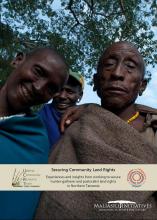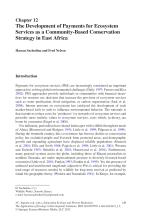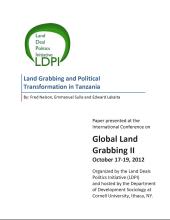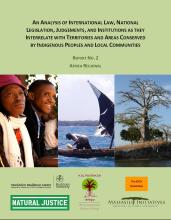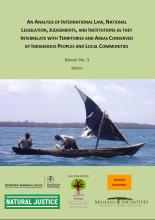Land Library
Welcome to the Land Portal Library. Explore our vast collection of open-access resources (over 74,000) including reports, journal articles, research papers, peer-reviewed publications, legal documents, videos and much more.
/ library resources
Showing items 1 through 9 of 9.Across the developing world, rural women suffer widespread gender-based discrimination in laws, customs and practices cause severe inequalities in their ability to access, control, own and use land and limit their participation in decision-making at all levels of land governance.
In northern Uganda, common grazing lands are central to village life. While nominally used for grazing livestock, communities also depend on their grazing lands to collect basic household necessities such as fuel, water, food, building materials for their homes, and traditional medicines.
In this publication two pioneering grassroots organisations from northern Tanzania examine and present their experiences and insights from their long-term work to secure the land rights of hunter-gatherer and pastoral communities.
This paper explores the development of a pilot PES scheme in the Tarangire ecosystem of Tanzania in response to specifi c wildlife declines and policy constraints. It charts the development of this initiative from its genesis based on PES experiences in Kenya.
Like many of its neighbors, Tanzania is experiencing a well-documented surge of land grabbing related to investments in industries such as agriculture, biofuels, tourism, hunting, and forestry.
This report provides a synthesis of three country level case studies (Namibia, Senegal, Kenya) carried out in African countries as a part of the overall legal review of Indigenous People’s and Community Conserved Territories and Areas (ICCAs).
Across the world, areas with high or important biodiversity are often located within Indigenous peoples’ and local communities’ conserved territories and areas (ICCAs).
This research forms part of a larger study on large-scale land acquisition in Uganda.
This report investigates cases of land grabbing in Uganda, focusing in particular on oil palm plantations in Kalangala, Lake Victoria. It assesses the impacts on rural communities and on the local environment, and questions who benefits from these projects.



